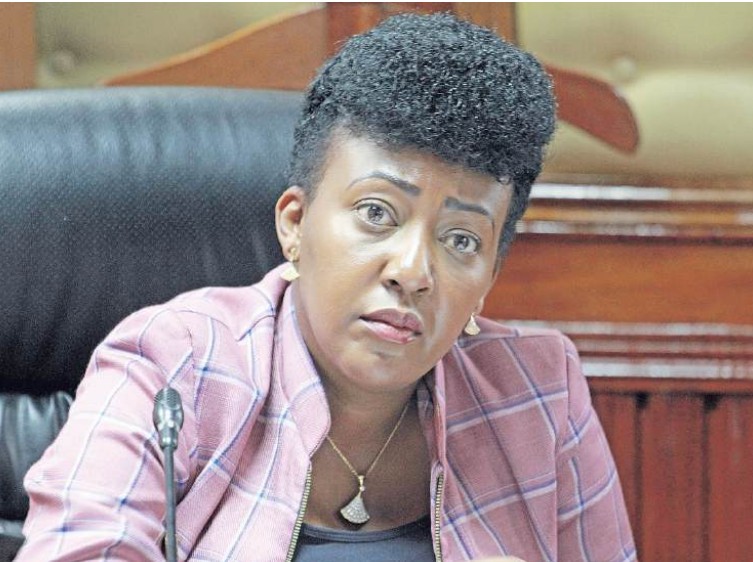

The Ministry of Health is calling for a comprehensive Health Impact Assessment to determine the extent to which the oil spillage in Thange Dam, Makueni county, has affected the health of residents and animals.
Health CS Aden Duale said the proposal follows the ministry’s discovery of widespread health concerns among the local population, believed to be linked to the 2015 spill.
“The Ministry recommends that a comprehensive Health Impact Assessment be conducted jointly by the Ministry of Health and the County Government of Makueni,” Duale said.
Speaking before the Senate Energy Committee, which is probing the incident, Duale disclosed that health issues—particularly respiratory complications, skin conditions, and chronic illnesses—are rampant in the area. These have been attributed to residents’ prolonged exposure to contaminated water in rivers and boreholes.
A delegation from the Ministry of Health, which visited the site between May 1 and 4, confirmed visible oil residues and a strong petroleum odour in the water sources. The team included public health officers, port health experts, environmental health specialists and legal and administrative staff.
Duale told senators that traces of oil were found in boreholes located up to 40 kilometres downstream. He also reported a sharp decline in agricultural productivity and rising cases of animal reproductive issues and suspected human birth abnormalities.
Duale said the delegation had concluded that the community is facing significant health and livelihood impacts, with about 10,000 residents affected by the spill.
The oil spill, traced to a suspected leak in the Mombasa–Nairobi pipeline, occurred on May 12, 2015. Although emergency response teams were deployed, petroleum traces had already reached the Thange River in Kibwezi East constituency by June 15 of the same year.
During a public baraza, residents raised concerns about a possible rise in cancer and kidney complications. They also reported cases of livestock miscarriages and deformities, crop failure, declining food security, soaring medical expenses, environmental degradation and loss of livelihoods.
“The ministry is recommending the provision of clean and safe water to the community, including drilling new boreholes in uncontaminated sites, offering regular psychosocial support and debriefing sessions and conducting annual medical check-ups for those exposed,” Duale told the committee.
He also called for the creation of a national registry to track long-term post-exposure complications in both humans and animals.
Duale noted that although the ministry was not involved in the immediate response to the 2015 incident, then-Senator Mutula Kilonzo Jr (now Makueni Governor) had reached out requesting health screening and environmental support.
Makueni Senator Daniel Maanzo told the committee that the High Court had ordered the Kenya Pipeline Company to compensate affected residents. However, he expressed frustration that the matter remains unresolved.
“It is embarrassing that the state agency responsible has failed to resolve this issue amicably, even after 10 years,” Maanzo said.
“KPC must be compelled to compensate the people of Thange who have suffered immensely.”
In its submission to the Senate, KPC stated that it had compensated 342 households with Sh38 million and offered to drill a borehole as part of its intervention. However, disputes among villages over the preferred drilling site reportedly stalled the project.
KPC also said it had conducted clean-up operations for over three years using both internal and external experts.
Energy committee chairperson and Siaya Senator Oburu Oginga described the situation as dire, noting that over 242 households are still at risk due to unexplained illnesses and deaths.
“It is deeply concerning that the residents of Thange continue to suffer the consequences of this environmental disaster,” Oburu said.
“The Senate is calling on the Kenya Pipeline Company, the National Environment Management Authority and the Makueni County Government to work together to find a lasting solution to this long-standing crisis.”
INSTANT ANALYSIS
In a petition to the Senate Standing Committee on Energy, Thange MCA Erick Musyoki Katumo outlined how the spill caused widespread land and water pollution. Residents say their once fertile farmland is no longer arable, and their water sources are unsafe due to suspected lead contamination. Katumo said the oil spillage led to the loss of agricultural productivity.












